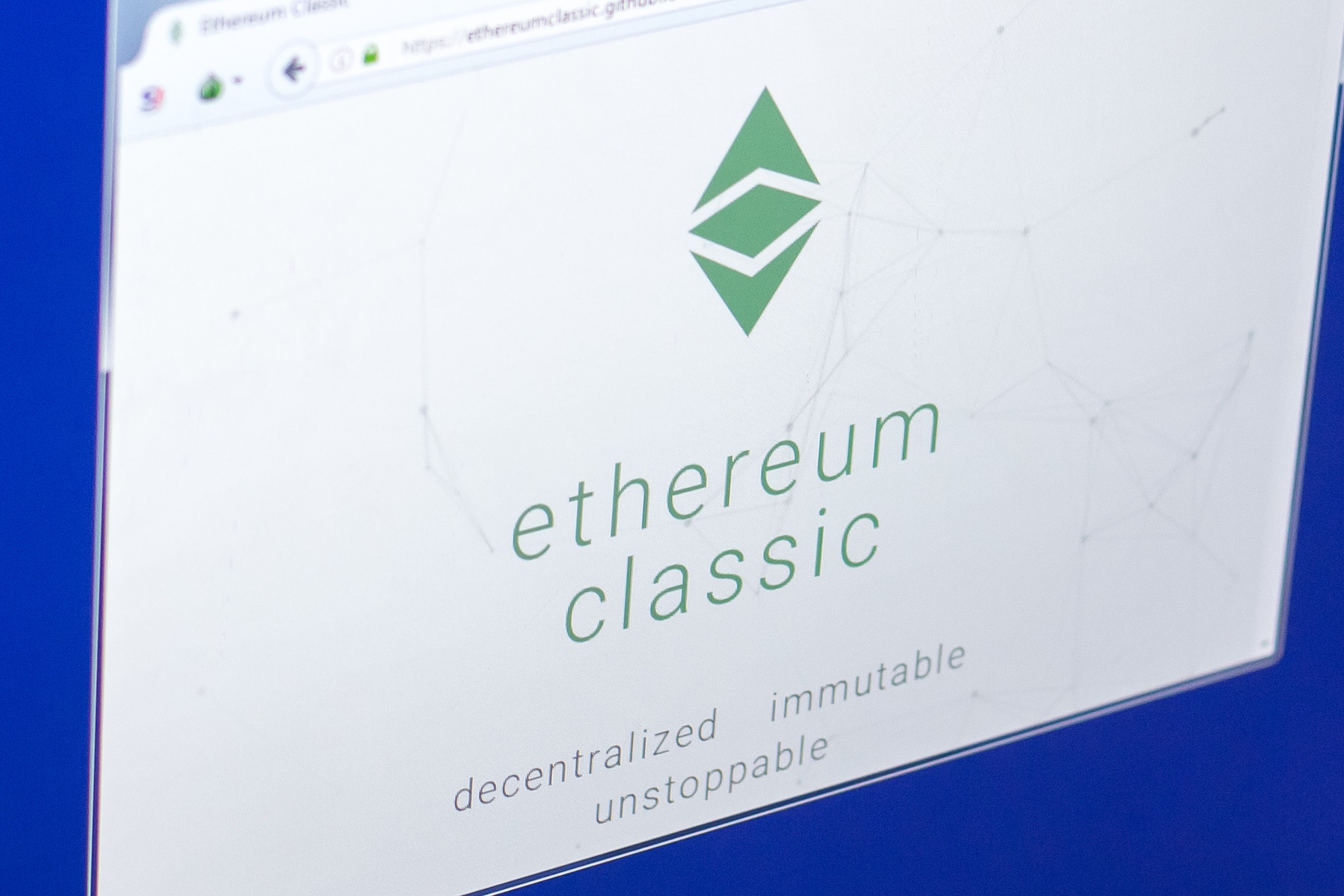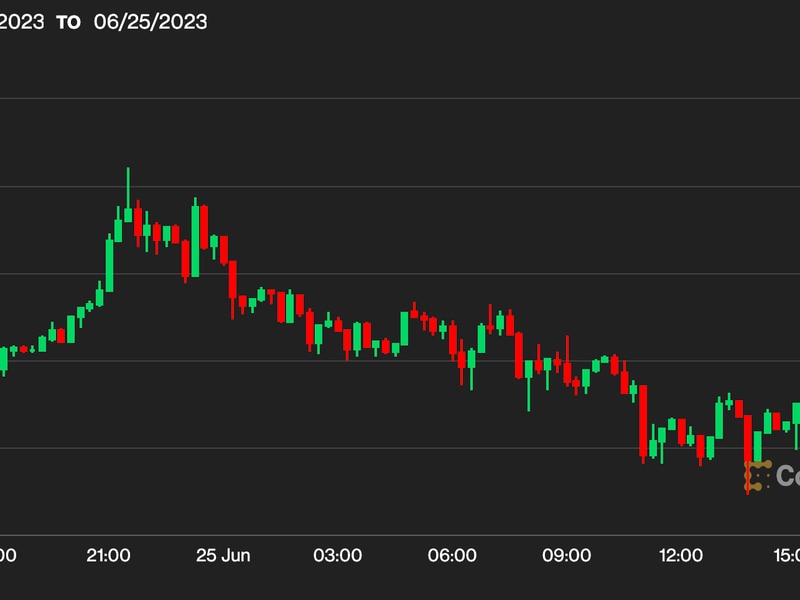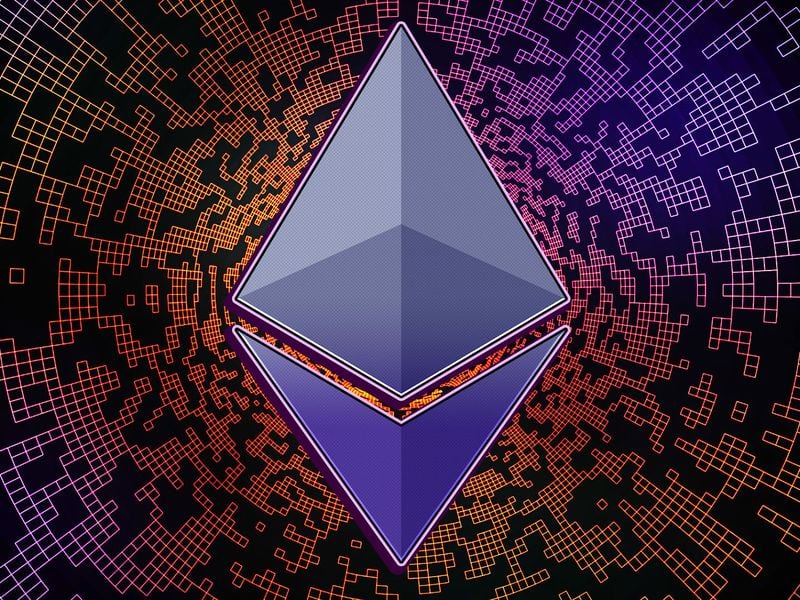The Protocol: Is Solana’s Rebound The Real Thing?
/arc-photo-coindesk/arc2-prod/public/LXF2COBSKBCNHNRE3WTK2BZ7GE.png)
CoinDesk tech reporter Sam Kessler here, filling in for The Protocol editor Brad Keoun while he’s off for the holidays.
The past week was a relatively quiet one in crypto land, with the New Year putting a relative calm on some trading and most tech development. But crypto is 24/7, and you might have missed some of the hacks, updates, and regulatory news while you were off watching the fireworks.
In this week’s edition of the Protocol, we’ll tell you about Ethereum co-founder Vitalik Buterin’s updated roadmap for the ecosystem, which zeroes in on how developers might be able to address the chain’s ongoing speed and centralization problems. We’ll also talk about the dramatic rebound of Solana, which has seen a huge surge in activity in recent months following its cratering during the last crypto crash.
On behalf of Brad and the rest of The Protocol team, I hope you had a happy New Year, and a sincere thanks for continuing to follow along with us in 2024.
This article is featured in the latest issue of The Protocol, our weekly newsletter exploring the tech behind crypto, one block at a time. Sign up here to get it in your inbox every Wednesday. Also please check out our weekly The Protocol podcast.
Network news
SOLANA: BOOM TIMES OR BLIP? Solana’s SOL token, which crashed in price from over $200 in 2021 to under $10 in 2022, has buoyed back above $100 in recent months, making it one one the biggest beneficiaries of the recent crypto market surge. The Solana blockchain was pilloried last cycle for its close ties to Sam Bankman-Fried and its spotty track record of network outages. SOL’s latest price gains have been viewed by some as a signal of wider confidence in the ecosystem – an indication that traders see sordid company and performance issues as problems of the past. But the gains to SOL were accelerated in large part by auxiliary memes and airdrops, with a frenzy towards a few Solana-based tokens driving much of the hype. The biggest winner was BONK, a meme coin that has lept in price by over 200% in the past 30 days. (A funny side-plot to the BONK boom is that it was airdropped to owners of the Solana phone, which suffered from dismal sales until people realized they could buy it to nab BONK tokens, which were for a time worth more than the device itself.) Other winners included Pyth, a Solana-focused oracle network that recently launched a token; and Jito, a liquid-staking service whose just-airdropped JTO token marked a huge payday for some unsuspecting users. The Solana network has seen some technical improvements in the past couple of years, but, as is often the case in the world of blockchains, it remains to be seen whether the positive market developments were driven by genuine adoption of the speed-focused blockchain ecosystem, or by traders that will soon leave in favor of other buzzy bets.
VITALIK BUTERIN UPDATES ETHEREUM ROADMAP: Ethereum co-founder Vitalik Buterin released an updated version of his Ethereum ecosystem roadmap last weekend. The roadmap is used as a rough guiding post and progress tracker for the overall development of the Ethereum ecosystem, and this year’s update gave a glimpse into how Buterin thinks the second-most valuable blockchain ecosystem might be able to address two of its biggest challenges: speed and centralization. In an X thread documenting some of the main changes to the roadmap, Buterin underscored the rising importance of single slot finality, which he endorsed as “the easiest path to resolving a lot of the Ethereum Proof-of-Stake design’s current weaknesses.” The concept refers to a set of changes that would cut down on the time it takes for transactions to get cemented onto the Ethereum ledger (transactions today don’t get finalized for 64-95 “slots,” equating to around 15 minutes.) Buterin’s new roadmap also widens the scope of “The Scourge,” which is a bucket of upgrades aimed at surmounting some of Ethereum’s centralization risks. Buterin’s previous definition of The Scourge focused specifically on problems with MEV extraction, but the new one focuses on “fighting economic centralization in PoS in general,” and it’s been expanded to specifically address issues around pooled staking.
-
Arbitrum
deposits surpass $2.5 billion and the chain’s ARB token tops a record-high $2 on Wednesday, signaling the rollup chain’s continued lead in the turf battle to scale Ethereum.
-
Jim Cramer, the CNBC host and retail trading bellwether, has a
change of heart
on Bitcoin, calling it a “technological marvel” that’s “here to stay.”
Protocol Village
Highlighting blockchain tech upgrades and developments.
1. Particle Network, describing itself as the “intent-centric modular access layer of Web3,” unveiled “BTC Connect,” claiming it’s “the first-ever account abstraction protocol for Bitcoin.” According to the team: “BTC Connect harnesses ERC-4337 design and L2 EVM-compatible chains to introduce a Smart Account, Paymaster, Bundler and a unique Bitcoin-specific Modal.”
2. KuCoin, a Seychelles-based crypto exchange, said its KuCoin Labs unit has invested in ISSP, to support the development of its “ground-breaking inscription protocol, which operates on the cutting-edge Sui network,” according to a press release.
3. Fountain, a podcast app powered by the Bitcoin Lightning Network, has “launched its biggest design and user experience upgrade to date,” co-founder Nick Malster told Protocol Village. “It’s now easier than ever before to support your favorite podcasts, discover new ones through social features like clips and playlists, as well as earn bitcoin (BTC) for listening and sharing the best content. Strike users can also now connect their Strike account with their Fountain wallet.”
4. Waterfall Network, a layer-1 blockchain based on “Directed Acyclic Graphs” or DAG technology for fast-finality proof-of-stake consensus, launched Testnet 8, “representing the latest version of the protocol with optimizations and fixed bugs allowing the network to achieve loads of 10,000+ transactions per second.”
5. Amboss, a data analytics provider for the Bitcoin Lightning Network, launched “Ghost Addresses, which empower users to seamlessly receive payments into self-custody without reliance on the centralized wallet intermediaries that have dominated usage to-date,” according to the team.
Money Center
-
SEIYAN
, a meme-coin on the Sei blockchain, gains 400% in just a week, signaling wider growth for the ecosystem.
-
Traders on Polymarket, a crypto-based prediction market,
place the odds
of the U.S. Securities and Exchange Commission approving a Bitcoin ETF by Jan. 15 at 89%.
-
Terraform Labs, the company behind the ill-fated Terra and Luna cryptocurrencies, violated federal securities laws when it sold its cryptocurrencies to the public, according to a
ruling last week
by a U.S. federal judge.
-
Nigeria
reversed its prohibition
on local banks and financial institutions serving crypto firms in a move expected to further accelerate the adoption of cryptocurrencies in one of the world’s biggest digital asset markets.
-
Some South Korean public officials will be required to disclose their crypto holdings
under new legislation
aimed at improving government transparency.
Calendar
-
Jan. 1: Happy New Year from The Protocol!
-
May 29-31, 2024: Consensus, Austin Texas
-
Nov 12-14, 2024: Devcon 7 Southeast Asia, Bangkok Thailand.
Edited by Bradley Keoun.









